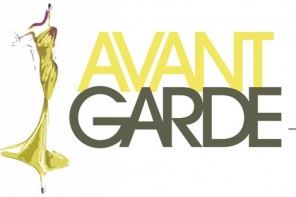According to The Guardian, developing countries “react furiously” after a draft text allegedly written by the UN conference’s host country was leaked Tuesday
For more than a week a rumour has circulated that Denmark, host of the ongoing UN conference on climate change, has drawn up a compromise text. On the afternoon of the conference’s second day, The Guardian published what it claimed to be this text. The British newspaper also claims to have read “a confidential analysis of the text by developing countries” which “shows deep unease”.
“You need to listen to all countries. That’s what democracy is about, and that’s what you have been cheering in Denmark. What your Prime Minister (Lars Løkke Rasmussen) does is contrary to the spirit of the developing aid, which Denmark has provided for Africa through many years,” Lumumba Stanislaus Di-Aping (photo above), chair of the Group of 77, mostly consisting of developing countries, tells Danish daily Politiken.
The draft on The Guardian’s website is headlined “The Copenhagen Agreement under the UN Framework Convention on Climate Change”. It gives 2020 as the year in which global emissions should peak, while “acknowledging that developed countries collectively have peaked and that the timeframe will be longer for developing countries.” The text specifies that emissions from developed nations should be reduced by 80 percent by 2050 compared to 1990 levels. It also proposes for an interim reduction target for developed countries by 2020 to be set – meeting a key demand from developing countries. However, so far the figure is just given as “X” – meaning it will not be stated before the high level negotiations next week.
A critical issue in the UN negotiations has been whether or not certain developing countries should undertake commitments. Under the present agreement, The Kyoto Protocol, all developing countries are exempted from obligations, but industrialized countries have stressed that this is not feasible in the future. On this issue, the “Danish text” says that “developing countries, except the least developed which may contribute at their own discretion, commit to nationally appropriate mitigation actions.” These commitments are suggested to be given as a percentage – to be negotiated next week – which should be achieved by 2020. However, the percentage should not be compared to present levels, rather to a business-as-usual scenario.
According to The Guardian’s sources, developing countries are infelicitous about the new proposed division between the “least developed” and other developing nations. Another point of concern is the draft’s suggestion to transfer more control over the enforcement of the Copenhagen agreement from the UN administration – playing an absolute key role in the Kyoto Protocol – to the World Bank. This move would indirectly shift more control over to the industrialized world.
According to Danish daily Berlingske, the leak of the draft at this early stage of the conference is seen as unfortunate by European negotiators: “It is incredibly inappropriate to have this document circulating on paper at this point. It should not have come out until next week,” an unnamed source in the delegation of a European country tells Berlingske.
According to Danish daily Jyllands-Posten, a press release from the Danish Climate Ministry denies that the text published by The Guardian is an official Danish proposal for a compromise text. UNFCCC Executive Secretary Yvo de Boer comments in a press release: “This was an informal paper ahead of the conference given to a number of people for the purposes of consultations. The only formal texts in the UN process are the ones tabled by the Chairs of this Copenhagen conference at the behest of the Parties.”
Source: COP15
The liveeco team






